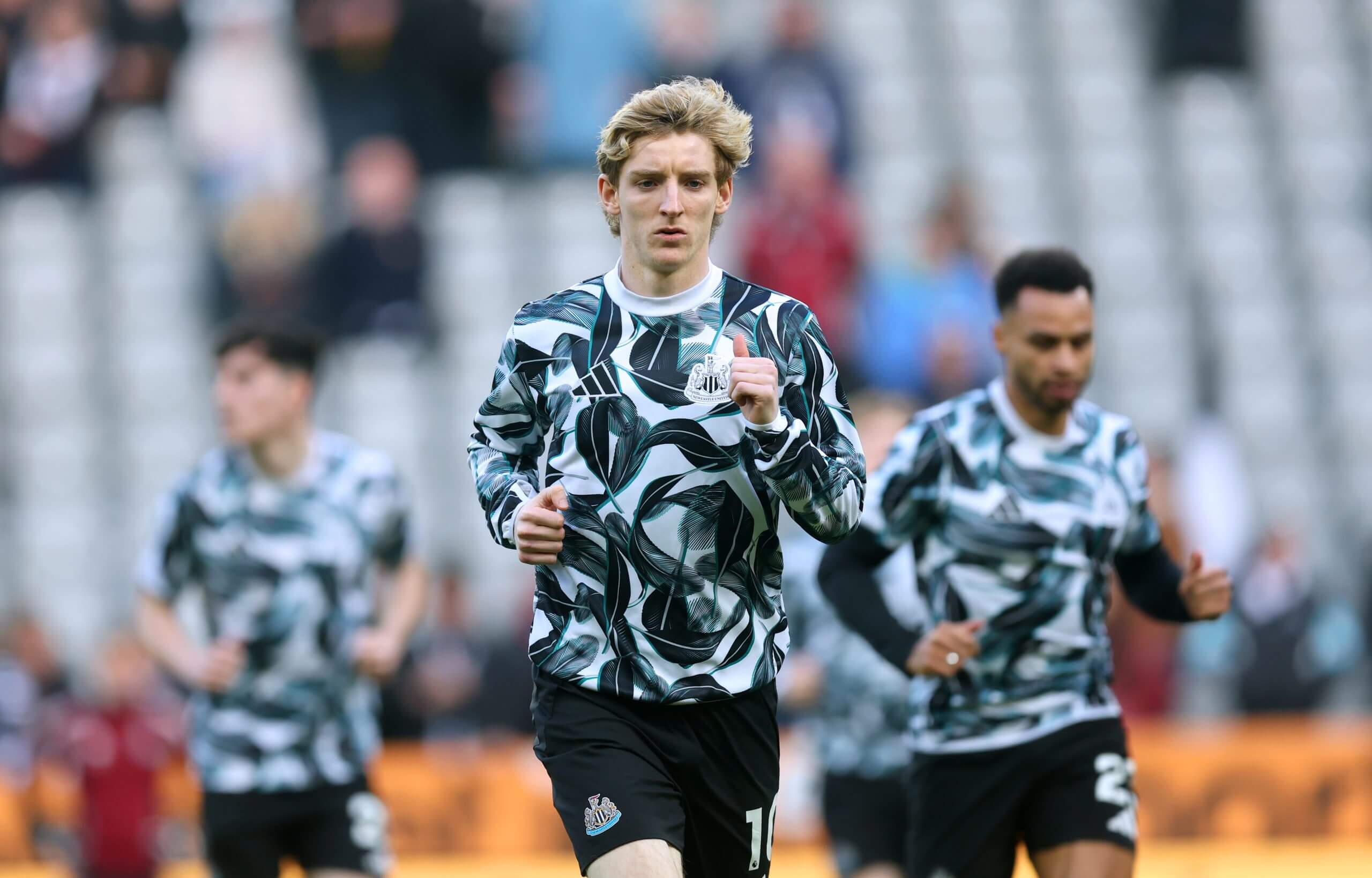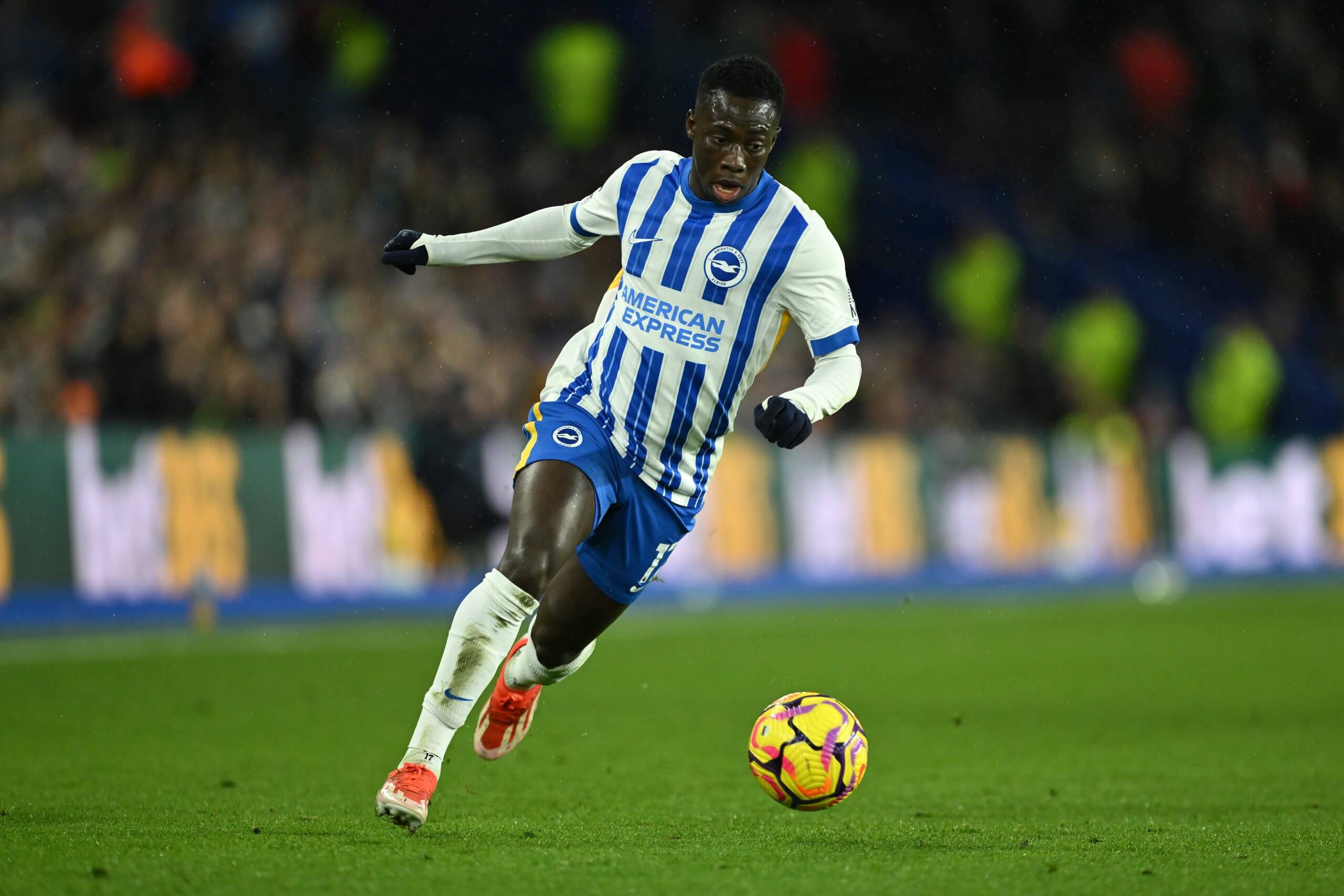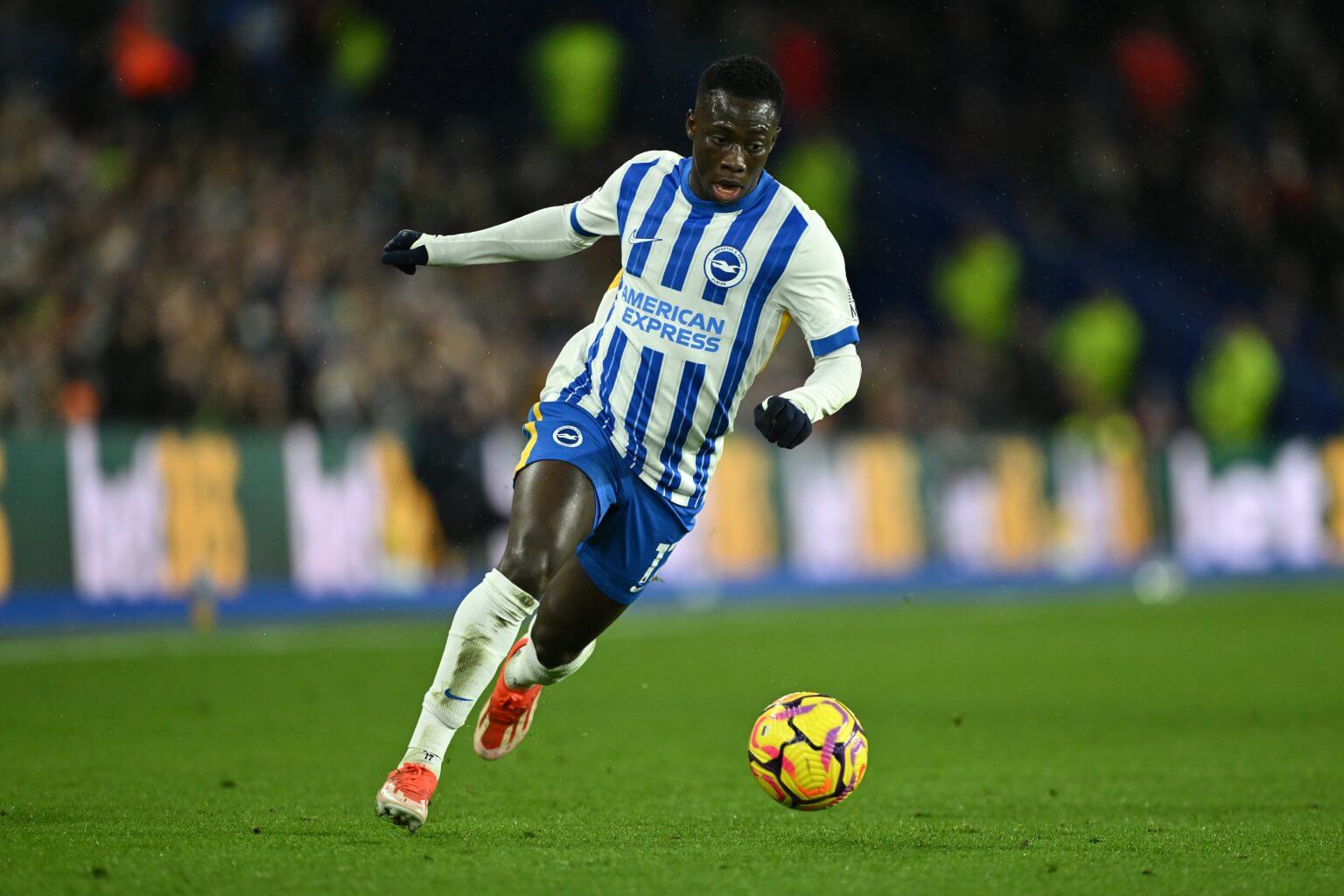This time two years ago, Newcastle United were third in the table and revelling in a 15-game unbeaten run in the Premier League, a club record. After their goalless draw at Crystal Palace, their sixth clean sheet in succession (another record), they successfully negotiated a two-legged Carabao Cup semi-final against Southampton, earning a place at Wembley. Tyneside throbbed with excitement and ambition. Hope was unleashed.
Advertisement
On January 29, Anthony Gordon had joined from Everton for an initial fee of £40million ($49.5m at today’s rates), all paid up front, a deal Newcastle brought forward from the summer to capitalise both on the selling club’s need for funds and their own unexpected position. There was risk involved, not about Gordon himself, but in terms of what might be coming down the line.
Some of this drama was captured in the Amazon Prime documentary, We Are Newcastle United, as directors discussed how much they could afford to invest on a talented young player who, at that point, was not a full England international. The Premier League’s profit and sustainability rules (PSR) were already in their thoughts. “Eddie adores him,” Amanda Staveley, then one of the club’s co-owners, said on screen. “But at the moment, I recognise we can’t spend what we would like to spend on players.”
Yet the risk was not one-way. After two decades in exile from the Champions League, a generational opportunity was beckoning for Newcastle, with all the financial and reputational benefits that follow.
If they did not act, as Staveley put it, “Eddie is going to think: ‘How am I going to deliver Champions League football for next season?’. I don’t want him pressured. If we can only spend a certain limited amount and we can’t spend beyond, we’re going to have to assume that we’re not going to hit the Champions League next season.”
Ultimately, this argument prevailed. Newcastle acted and if Gordon did not quite have the immediate impact some anticipated, just look at him now. In any case, the club had strengthened from a position of strength, sending out a message to a refreshed dressing room and beyond, and momentum continued to power them. If Wembley — where they lost to Manchester United — proved a disappointment, finishing fourth in the league still represented an astonishing achievement.

The signing of Gordon proved fruitful in the long run for Newcastle (George Wood/Getty Images)
Two years on, Newcastle are in a comparable place. Sunday ended with them fifth in the league, which could be good enough for Champions League football. They have won 10 of their last 12 games in all competitions. They are in the last four of the Carabao Cup and hold a 2-0 lead over Arsenal for Wednesday’s second leg. And, once again, PSR is occupying minds in the boardroom — although it is here that paths diverge.
Advertisement
A third transfer window in which Newcastle have failed to strengthen their first XI is drawing to a close and, in these terms, tumbleweed might as well be blowing down Barrack Road. This time, there is no hint of a dilemma, no suggestion the club’s hierarchy might be preparing to roll the dice to make the most of where they find themselves, which looked far beyond them a couple of months ago.
As Howe told reporters on Friday, “We knew this window, barring something huge happening that we didn’t expect, would be a window that we didn’t recruit in. I said that right from the outset and despite being linked with numerous players, that’s still the case. We’re not actively looking to bring players in but hopefully, the squad is in a decent place.”
And then Saturday rolled along, bringing a different perspective of where Newcastle’s squad might be. The 2-1 defeat to Fulham was a second consecutive home loss and the first time in 13 months Howe’s team had lost a league game they were leading in. Again pressed about transfers, the head coach said: “There’s nothing we can do. The window will be what it is and results won’t change that.” Just as there had been against Bournemouth, there was a tiredness to the occasion.
There is a reasonable argument to be made that Newcastle would not be as restricted if they had not been so spendthrift in the first couple of years post-takeover. The counter-point is each window brought challenges that could not be avoided, from battling to avoid relegation to signing Alexander Isak to cover Callum Wilson’s injury and pushing for the top four. Given the success and memories those decisions provoked, it is difficult to wish them away.
One consequence came in Newcastle’s unedifying scramble to bring in funds before the Premier League’s accounting deadline at the end of June last year, finally selling Elliot Anderson and Yankuba Minteh — players they wished to keep — to avoid a potential points deduction the club feared might stretch into double figures. Nobody wanted to go through that again. Having pushed through Minteh’s sale to Brighton & Hove Albion, Staveley left shortly afterwards.

GO DEEPER
Inside Newcastle’s frantic attempts to sell players and comply with PSR

Minteh was sold to Brighton last summer (Mike Hewitt/Getty Images)
For better or worse, Staveley was a gambler; the biggest bet of her life was to invest in Newcastle, a beautiful basket-case club that has not won a domestic trophy for 70 years and that had been addled by poor decisions. Even in the worst moments, she saw something worth persevering with. Without her, they are taking a different tack, safer, less chaotic and perhaps less dynamic, too.
Advertisement
The gamble now is not gambling, protecting their bottom line but leaving themselves open to attack elsewhere. The Champions League is where Newcastle aspire to be, but as last season demonstrated, when they were bedevilled by injury, there are no guarantees. They have an opportunity now and they have the talent to embrace it, but they lack depth and, unless there is a huge shift over the next few hours, will not be getting the boost of recruits. Motivation and momentum will have to be self-generated.
Howe has often cautioned about staleness setting into a squad that is allowed to tick over without change and Newcastle’s is weaker than it was a month ago following the departure of Miguel Almiron to Atlanta United. It would be weaker still if an agreement is reached with Juventus over Lloyd Kelly, the centre-half.

GO DEEPER
Bye-bye ‘Wor Miggy’ – Newcastle’s frustrating finisher, but beloved grafter
“I don’t know if I can use that (staleness) as an excuse,” Howe said after Fulham. “We just have to say, individually, we weren’t anywhere near our best levels, and collectively the same. It’s a huge frustration because I saw today as a huge opportunity in lots of different ways to continue our good feeling and momentum. It’s just the general level of performance that leaves me frustrated because there’s so much more in our tank.”
At home this season, Newcastle have lost to Fulham, Bournemouth, West Ham United and Brighton, which feels like a pattern. They took the lead against Marco Silva’s side through Jacob Murphy on his 200th appearance for the club but lost their way badly in the second half. Joe Willock missed an open goal — the club released a statement on Sunday condemning the racist abuse the midfielder subsequently received on social media — and Alexander Isak struck the crossbar, but they failed to exert any control. Howe had no game-changers on his substitutes bench.
It is Arsenal next and a make-or-break kind of occasion. Newcastle’s big call is to have done nothing and although that was partially enforced, there is also an element of choice. There has to be when they were not averse to pursuing Crystal Palace’s Marc Guehi last summer, even if it was not for the exorbitant fees that were publicly quoted. They could have done something and picked up the pieces later.
In opting to be sensible, they are toying with a different form of jeopardy. Beat Arsenal and hope will be unleashed again. Lose and discomfort and pressure will climb, the kind Staveley sought to avoid by bringing in Gordon. Back then, Newcastle decided to twist — but sticking comes with peril, too.
(Top photo: George Wood/Getty Images)
